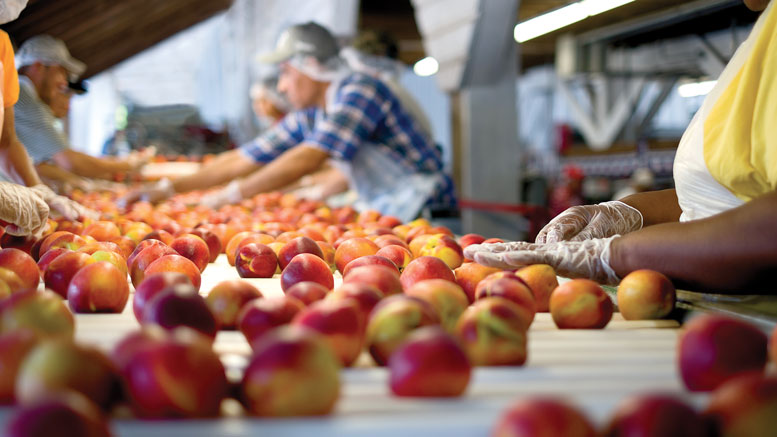Temperature Controlled Warehousing in Georgia: Sustaining the Peach State’s Perishables
Jan 11, 2024
BlogTemperature-controlled warehousing is a vital component of Georgia’s logistics and supply chain infrastructure, particularly for industries dealing with perishable goods. In this blog, we’ll explore the significance of temperature-controlled warehousing in the Peach State, providing key statistics, educational insights, and a deeper understanding of its role in the state’s economy.
Key Statistics:
- Economic Impact: Temperature-controlled warehousing facilities in Georgia make a substantial contribution to the state’s economy. These warehouses collectively comprise millions of square feet of storage space, catering to a diverse range of industries, including agriculture, food processing, pharmaceuticals, and more.
- Agricultural Heritage: Georgia’s agricultural industry is diverse, producing a variety of crops, including peaches, peanuts, and poultry products. Temperature-controlled storage is essential for preserving the quality and safety of these goods and supporting the state’s agricultural sector.
- Facility Diversity: Georgia is home to a variety of temperature-controlled storage facilities, each capable of maintaining specific temperature ranges, from deep freezing to controlled cooling, ensuring the safety and freshness of various products.
Educational Insights:
- Cold Chain Management: Temperature-controlled warehousing is an integral part of the cold chain, encompassing the entire process of storing, transporting, and distributing temperature-sensitive products. These facilities are pivotal links in safeguarding the quality and safety of goods as they journey from producers to consumers.
- Cutting-Edge Technology: These warehouses employ advanced technology to monitor and control temperature, humidity, and other environmental factors. Automation and IoT systems guarantee that products are stored under optimal conditions throughout their storage period.
- Regulatory Compliance: Temperature-controlled warehousing facilities in Georgia strictly adhere to regulations and standards to ensure the safety and quality of stored goods. Compliance with FDA, USDA, and other relevant agencies’ guidelines is a top priority.
Significance of Temperature-Controlled Warehousing:
- Quality Preservation: By maintaining the correct temperature and humidity levels, temperature-controlled warehousing ensures the freshness and safety of food products, reducing the risk of spoilage and bacterial growth.
- Waste Reduction: These facilities play a pivotal role in minimizing food waste by extending the shelf life of perishable products, contributing to sustainability efforts and environmental conservation.
- Year-Round Availability: Temperature-controlled storage guarantees that consumers have access to fresh produce and other goods throughout the year, mitigating the impact of seasonal variations and shortages.
Conclusion:
Temperature-controlled warehousing in Georgia is a cornerstone of the state’s economy, dedicated to safeguarding the quality and safety of perishable goods. With cutting-edge technology, strict compliance with regulations, and a commitment to preserving the integrity of the cold chain, these facilities are the unsung heroes ensuring consumers have access to safe and fresh products.
Whether you are a business owner in need of temperature-controlled storage services or a curious consumer interested in the logistics behind your daily groceries, understanding the significance of temperature-controlled warehousing in Georgia is vital. These facilities are the invisible force behind the quality and safety of the products that reach your table, playing a vital role in the state’s economy and its commitment to sustainable, high-quality goods.


 Dave McGowan has been a member of the WEL Family since May 1989. He is a husband and father of two children. Dave is also a U.S. Army veteran and served in Vietnam in 1971-1972, and he attended driving school soon after he was released from the military in 1974.
Dave McGowan has been a member of the WEL Family since May 1989. He is a husband and father of two children. Dave is also a U.S. Army veteran and served in Vietnam in 1971-1972, and he attended driving school soon after he was released from the military in 1974. During his career with WEL, Phil has worked as a driver, dispatcher, terminal manager and customer service manager. He says he always was a driver first, though non-driving jobs taught him financial management that helps him as an owner-operator.
During his career with WEL, Phil has worked as a driver, dispatcher, terminal manager and customer service manager. He says he always was a driver first, though non-driving jobs taught him financial management that helps him as an owner-operator.